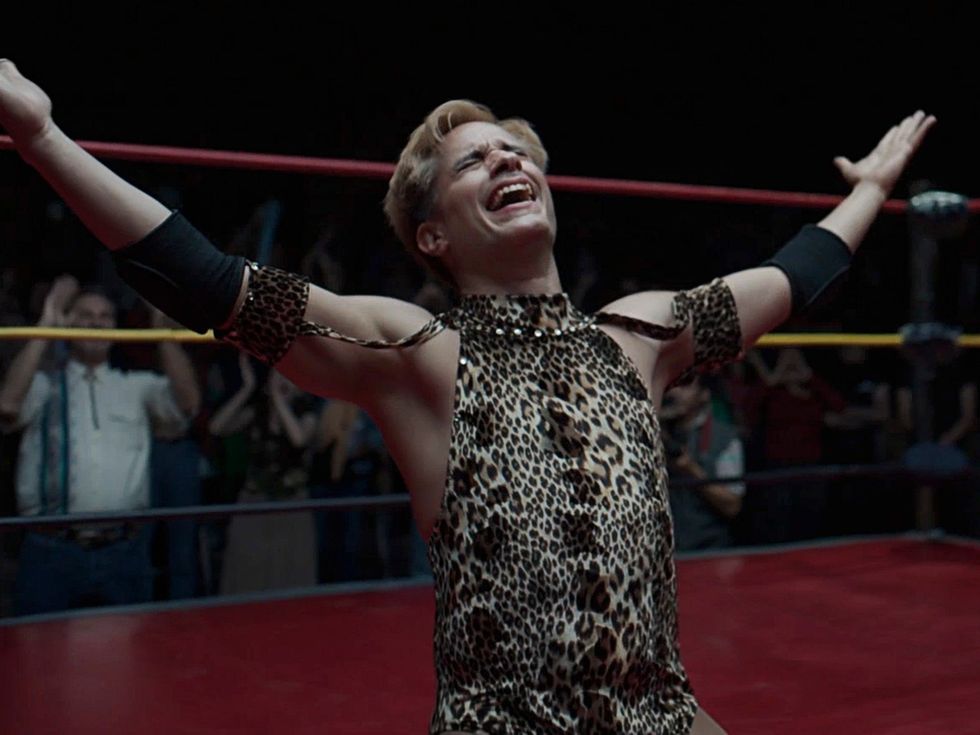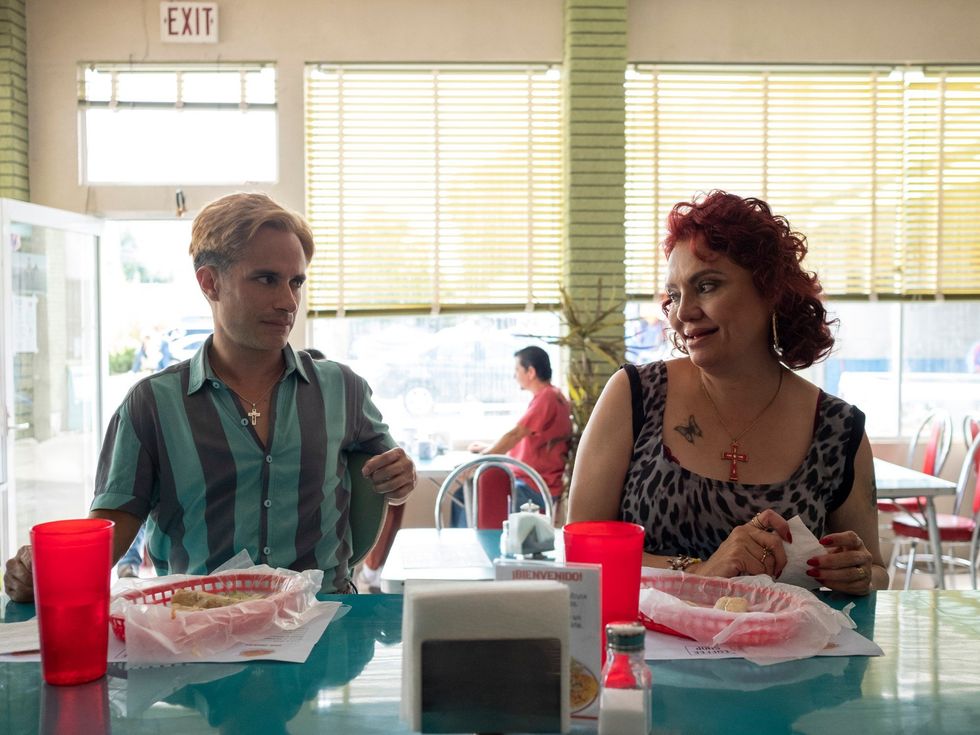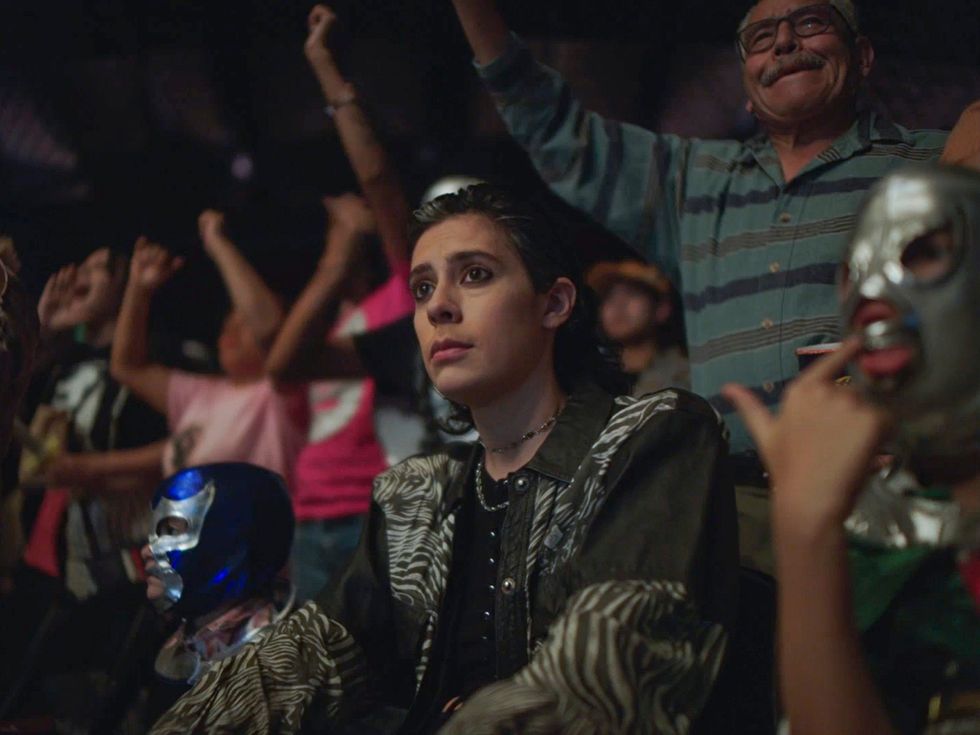mucha lucha
Cassandro wrestles with lucha libre and homophobia in real-life story
The LGBTQ community and the sports world have long had an uneasy relationship, especially in the United States. There are exceedingly few out male athletes around the world compared to the number of players total, and even though the world has progressed in significant ways, that statistic doesn’t seem likely to change anytime soon.
Although some don’t view professional wrestling as a sport, the culture around it is certainly testosterone-heavy, an idea that’s challenged in the new film, Cassandro. Saúl (Gael Garcia Bernal) lives in El Paso, but regularly crosses the border into Juarez, Mexico to participate in lucha libre matches. On the small side, he’s regularly cast as the runt, who never stands a chance at winning.
Openly gay, Saúl decides to change his wrestling persona to be an “exótico,” allowing him to express himself in a flamboyant manner. With the new wrestling name of Cassandro, Saúl starts to gain the notice of promoters and fans. At the same time, he wrestles with personal issues, including the strained life of his single mother, Yocasta (Perla De La Rosa) and an affair he’s having with a fellow luchador, Gerardo (Raúl Castillo).
Written and directed by Roger Ross Williams and co-written by David Teague, the film has a solidly-told story featuring a mixture of good performances, even if it feels like there’s something missing. The movie has all the hallmarks of an underdog story, and while it hits some of expected signposts along the way, it also strangely seems to hold back in certain aspects.
If you’re not already familiar with the lucha libre culture, the film doesn’t make it easy to get a handle on it. As in all pro wrestling, the matches aren’t “real,” but how and when the wrestlers decide how to perform and who will “win” feels confusing in the context of the film. It’s clear that the confidence Saúl shows as Cassandro makes him more appealing, but the intricacies of lucha libre could have been expounded on a bit more.
This becomes even more evident when fans are shown yelling gay slurs at him and other exóticos. There seems to be a contradictory performativeness to the antagonism, as those same fans soon start supporting him. Oddly, any other explicit homophobia is kept hidden, which - given the time period (the 1980s and ‘90s) and the machismo prevalent in Mexican culture - seems like the filmmakers made a conscious choice to not go down that road.
That and other decisions leave the film a bit flat emotionally. Saúl/Cassandro goes through a lot of upheaval in the film, and while the majority of it is engaging, there isn't a point where the story fully captures your heart. As with other areas, if the filmmakers had pushed just 10 percent harder, it would’ve turned the film from good to great.
Bernal turns in a fantastic performance, despite the fact that, even though he looks younger than he is, he’s a little old to be playing this particular character. Still, he has a charm and athleticism that makes him believable throughout. Good in supporting roles are Castillo (playing a similar role he did in The Inspection) and Roberta Colindrez as Saúl’s trainer. Keep an eye out for Bad Bunny in a small but interesting role.
There’s a lot to like about Cassandro, the story that’s being told, and the performances it contains. But by choosing not to explore certain parts of the story as much as they could have, the filmmakers left a lot of emotionality out of it.
---
Cassandro is now playing in select theaters. It debuts on Prime Video on September 22.



